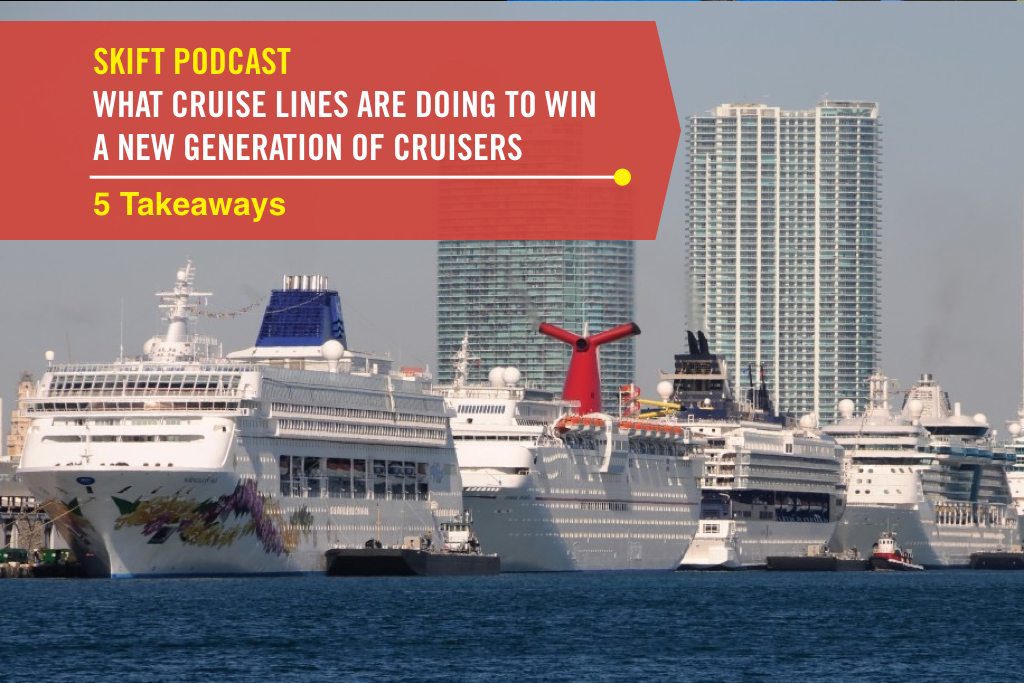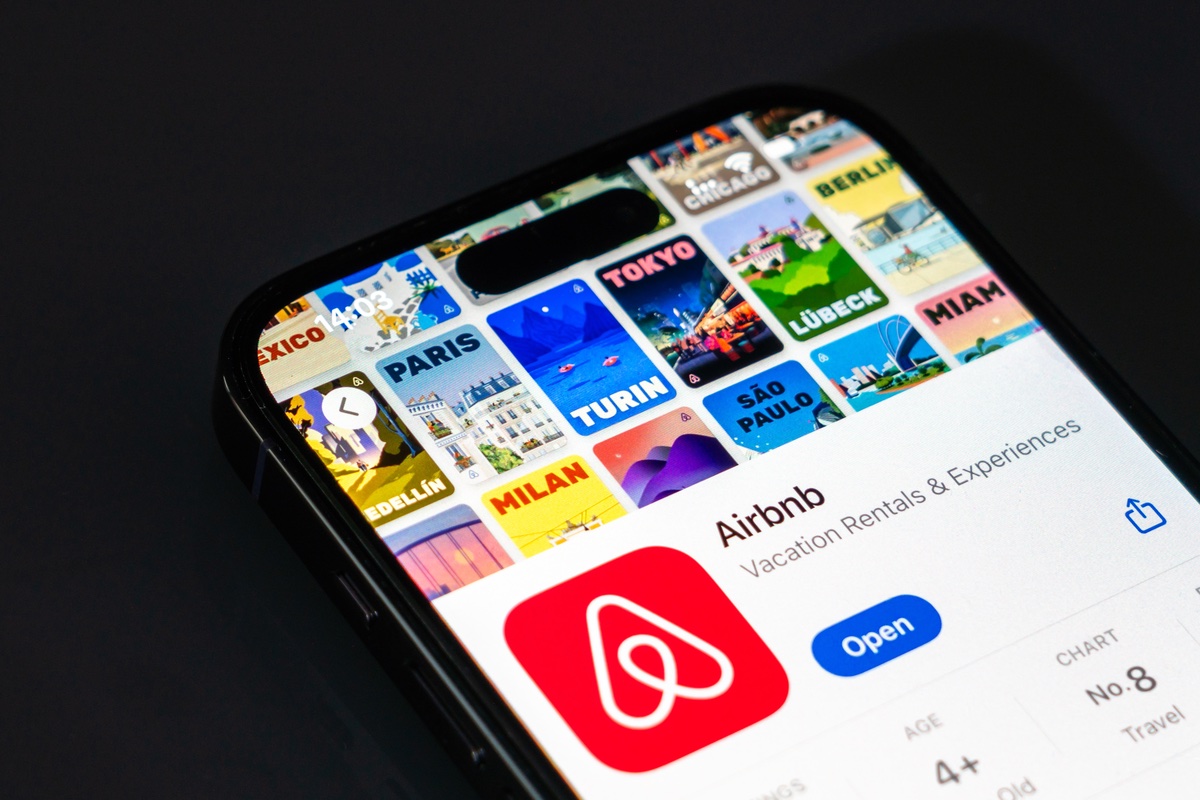What Cruise Lines Are Doing to Win a New Generation of Cruisers: 5 Podcast Takeaways

Skift Take
For a recent episode of the Skift Podcast, we looked at how cruise lines attract first-timers and millennials, who may become longtime, repeat customers as they start families.
On this episode, we hear from leaders of the world’s two largest cruise lines, featuring portions of separate conversations podcast host Hannah Sampson had with Christine Duffy, president of Carnival Cruise Line, and Michael Bayley, president and CEO of Royal Caribbean International.
Here are five takeaways from the conversations:
Accessibility is critical for attracting first-time cruisers.
At one point in time, it wasn’t financially attractive to try a cruise if you were on the fence about it. Now, it’s easier than ever to test one out with a minimal commitment of time and money. The ease of reaching a cruise port helps as well.
“We have a unique advantage because we have so many short cruises that we offer,” said Duffy. “For people who may not otherwise have considered a cruise, who might have a four- or five-day window… the idea of testing out a cruise doesn't seem so fully committed for the first time, and I think also because we have so many ships in home ports where 50 percent of the U.S. population can drive to a Carnival Cruise vacation in a half-day or less, it makes it very accessible, affordable, super convenient.”
Families and kids are part of the core audience.
For most families, if the kids don’t have fun, the family isn’t coming back. To that end, the needs of kids are carefully considered, but not to the exclusion of teenagers, young adults, parents, and grandparents.
“Beyond Seuss at Sea, beyond Ocean Camp, which is for the younger kids, we've got the arcades on board. We've got Circle C. We've got the teen opportunities to come together,” said Duffy.
Carnival sails with 700,000 children every year, but cruises are designed for multigenerational groups. Keeping cruising in the family then turns into organic word-of-mouth marketing.
“The good news for us is given that Carnival is such an iconic cruise brand, we've been in business since 1974, a lot of those millennials have grown up on Carnival cruise ships. So, for them the ability to travel with their families, to continue traveling with their families, they have a love of the brand,” said Duffy. “We also have a lot of older couples. We also know there is a major trend in travel where you see multi-generations traveling together.”
Influencers are getting younger.
We frequently think of influencers, depending on experience, as being in their 20s or 30s, but not necessarily. Children under 10 with huge internet followings actually affect the opinions of their peers, and the spending decisions of their parents. That’s big for cruising, a family-friendly vacation option.
“We have a new partnership and integration with The Ellen Show. She's had little Madelyn, the eight-year-old that knows everything about presidential history, she's had Maddie on the show and we've sent Maddie on a Carnival Cruise,” said Duffy. “Children that age are able to see what you can do on a Carnival cruise ship if you're Maddie. Last week on Ellen, there was a little boy who's a magician. Ellen liked him so much that he's now going on a Carnival cruise to be with our magicians.”
Connectivity is a non-negotiable.
Offering wifi at sea may be technically challenging at times, but younger passengers expect that constant connectivity and want to share their photos in-the-moment. And these days, it isn’t just kids who want that wifi.
“About two years ago we invested a lot of money, tens and tens of millions of dollars in the Voom technology,” said Bayley. “You can do your streaming. You can do your social media. You can do whatever you want, anywhere in the world, on any of our ships and the capability, speed of our internet is fantastic. That was very much a strategic step which was aimed at all of our customers but had an angle towards millennials.”
Duffy explained a similar initiative. “We have communication programs on board now through our hub app where for five dollars a day you're able to have access to Facebook and your social media, which even for that Generation Z is becoming a really important requirement if they're going to go on vacation for seven days with their parents.” And for the parents, “People who may have to work while they're at sea and want to download big documents and just want that 24/7 access like they have in their home or office.”
Millennials are diverse and can’t be pigeonholed for marketing purposes.
A millennial could fall anywhere between teenage years and early 30s, completely single or married with children. To that end, it doesn’t serve a marketing department well to oversimplify this group. Instead, it’s more productive to think of subsets within that group with very different needs.
“In marketing speak, this whole millennial category... It's a very broad group of people really,” said Bayley. “A millennial may not want to wash their cereal bowl and is self-absorbed and self-obsessed, taking selfies, but sure as the apple fall from the apple tree, as soon as those millennials hook up and start having kids, the world starts to take on a different shape and form. Then like every other parent around the world, they're looking for escape, relaxation, they want a bit of pampering and they're really hopeful that they can find a place where there kids get happy but don't bug them all day long. We can do that.”




